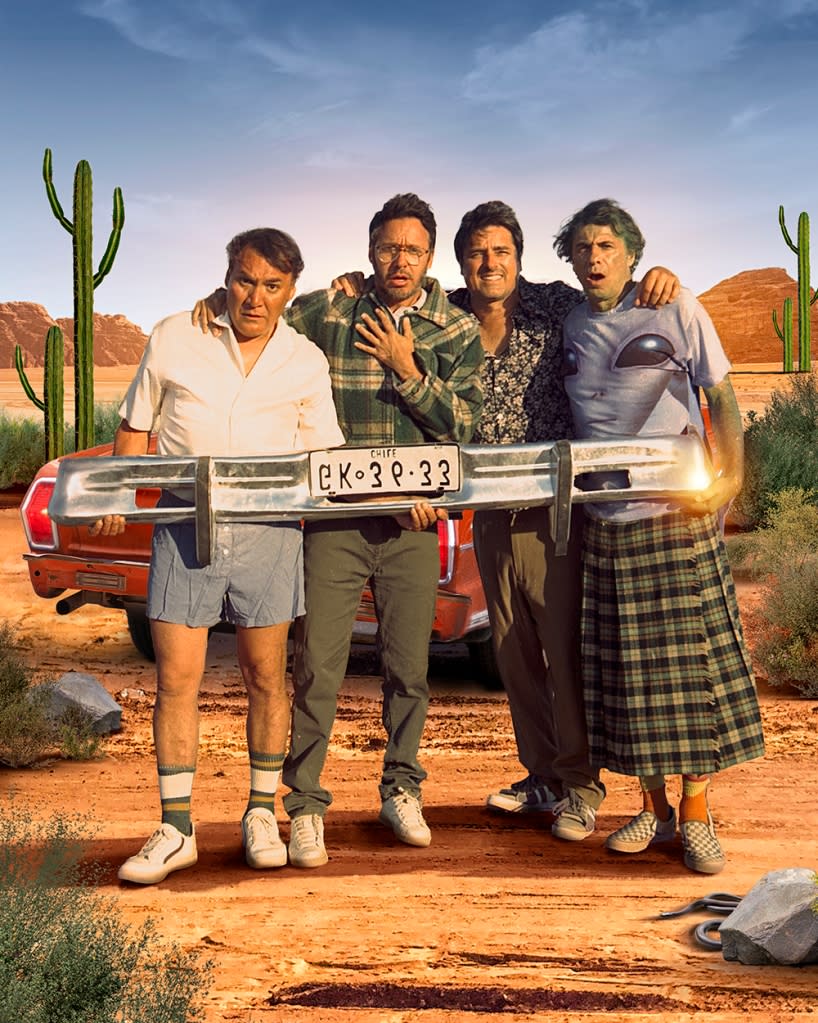Acclaimed Chilean Cinema Battles to Grow

Co-productions are increasingly the norm in Chile where state funds remain scant in a market of a mere 19.5 million inhabitants. Its new president’s campaign pledge last year to more than double the state’s contribution to the arts is not quite a reality, with a 16% increase noted so far. On the bright side, there has been an uptick in private funding, with some 50% of a film’s budget covered by private investors. To date, the audiovisual sector has seen a 31.5% increase in state funding this year compared to 2022.
Chilean filmmakers are also exploring new genres, straying from traditional dramas. More often than not — as in Maite Alberdi’s Sundance win for 2023’s “The Eternal Memory” — Chilean cinema has triumphed at one major festival or awards event after another.
More from Variety
Vertical Buys Clement Virgo's Acclaimed Drama 'Brother' (EXCLUSIVE)
Cannes Juror Brie Larson Unsure She'll See Johnny Depp Movie: 'I Don't Know How I'll Feel About It'
Topping it all, Chile’s Pedro Pascal, whose star has continued its meteoric rise with “The Mandalorian” and “The Last of Us,” is starring in Pedro Almodóvar’s Western short, “Strange Way of Life,” which world premieres at Cannes.
Competing in Cannes’ Un Certain Regard is the much-anticipated “The Settlers” (“Los Colonos”), co-produced with Argentina, the U.K. Taiwan, France, Denmark, Sweden and Germany.
Director Felipe Gálvez’s searing examination of Chile’s colonial past is lead produced by Quijote Films’ Giancarlo Nasi, who admits co-production can be complicated particularly since Chile has few bilateral pacts with other countries. Quijote is also co-producing Argentine Martin Rejtman’s “La Practica,” Colombian Cesar Augusto Acevedo’s second film, “Horizonte,” and Venezuelan Mariana Rondon’s upcoming “Zafari,” lead produced by Peru’s Sudaca Films and co-produced with Mexico, Brazil, France and the Dominican Republic.
Chile had its first post-pandemic box office hit early this year with Argentine Marcos Carnevale’s buddy comedy “Papa al Rescate,” from Sebastian Freund’s Rizoma Films, in co-production with Argentina and Spain, scoring more than 250,000 admissions compared to the 2020 local hit “Pacto de Fuga,” which earned 225,000 admissions. The most-viewed and longest-running Chilean film in the past five years, its box office topped $1.1 million, notes Freund, who’s in advanced remake talks with producers from Mexico, Spain, Brazil and the U.S.
Spanish co-producer Secuoya is handling international distribution and eyeing a Spanish remake. Rizoma Films has an eclectic range of projects and podcasts in development, including a psychological horror film based on a 1980s myth, another set in the world of blockchain technology and a biopic of Nobel Prize laureate Gabriela Mistral, played by Paulina Garcia.
“Chile depends on the world for its films. Most of them are international co-productions with many countries, which is why we producers have a strong presence in every international market as we seek partners, co-producers or present our projects or participate in laboratories,” says Storyboard producer Gabriela Sandoval, who also co-runs Sanfic with producing partner, Carlos Nuñez.
Looking at the state of Chile’s film industry from the outside in, Constanza Arena, former executive director of CinemaChile and now heading talent agency-project incubator Agencia La Luz, warns that Chile’s current boom could lead to a bust if state support doesn’t expand with it.
“Chile’s talent pool is large, but it has not really grown as a market or an industry as government backing remains limited,” she notes. “We don’t have a film commission or tax incentives for outside investors nor even bilateral deals with key markets Spain and Mexico.”
“Our audiovisual sector is in an ideal moment to continue growing and expanding, it only needs concrete public policies in the economic and cultural spheres that will allow it to be sustainable over time,” Sandoval points out.

Best of Variety
Tony Predictions: Best Musical -- Four Stand Poised to Give ‘Kimberly Akimbo’ Some Competition
This 'Fast and Furious' Arcade Cabinet Allows You to Step Behind the Wheel as Dom Toretto
Sign up for Variety’s Newsletter. For the latest news, follow us on Facebook, Twitter, and Instagram.

